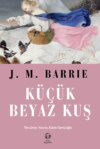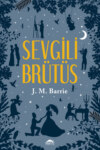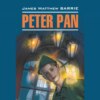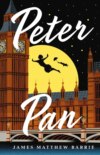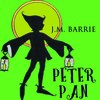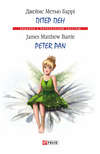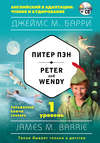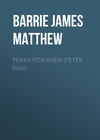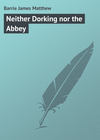Kitabı oku: «A Widow's Tale, and Other Stories», sayfa 32
THE WHIRL OF YOUTH
CHAPTER I
John Rushton's early life had been so peculiar that it was not wonderful if he found himself very much at sea when he was first plunged into the curious conventional life of an English University. He was older than most of the young men whom he found there – yet not very old, if he had not been already knocked about the world a good deal and filled with many experiences: and the first year at least passed over his head in great confusion, during which he let himself go with the stream in whatsoever eddy or current he might find himself, – which perhaps was not very profitable for his moral being, nor yet for his education properly so called. Life in the University is even more than in other places a congeries of whirls, one round or dance of wildly rushing figures, each encircling some swaying standard of its own, dance of the Mænads or of the Berserkers going on for ever in a mode that sets aside all that peacefulness of study and learning which we all, perhaps, vainly suppose is, or ought to be, found in the very atmosphere of these abodes of letters. I wonder if it ever was so. Did not the young clergy whirl too, in circles of asceticism or mutual devotion, or perhaps forbidden and secret pleasure, one trooping after another in the earliest days? Certainly the young Cavaliers must have done so, and likewise the young Puritans each treading in the other's steps, holding the other's coats, rushing round and round. It is not Fashion or Society alone that puts up those unsteady flagstaff's and leads the wild dance around them. It is nature, we must believe, since they exist everywhere. John got into the rush of the idle, and flew along in a monotonous circle among them like the merry-go-round at a fair. He did not like it much, but the whirl caught him and plucked at his feet and set him all in motion in the pathway of the others. And then he fell farther down into a wilder rush, still the whirl (so called) of pleasure and dissipation: and then recovering with an effort got back into the rush of the cultured and æsthetic and whirled through the world of pictures and furniture and poetry, finding no rest for the sole of his foot. His head was a little dazed with all these gyrations: he was a steady fellow, in fact, liking to feel firm ground under him, and to live his own way. And it was chiefly because his guardians and best friends – though in fact the sway of the guardians was virtually over – were intent upon conforming him to the recognised models, and subduing his instinct to be independent, a word into which they read other meanings, that he had come to the University at all, a place for which he felt that he was not fitted by previous training, nor likely to do much good in any way. At the beginning of his second year John returned a little ashamed of himself, feeling the strong likelihood that he would be led into one or another of his previous follies, and the almost conviction that he would find himself spinning like the rest in the contagion of youth and activity before he knew.
He was pondering upon this with a little discouragement of heart, wondering within himself with a rueful touch of humour when the first bevy of comrades would arrive and which it would be, when a summons came to him to go and see the Warden, which was rather an alarming call, considering that the work which had been given to him to occupy his vacation had not been done any more than the work of the previous year. He pulled on accordingly that shabby little pinafore (worn the wrong way about) of black stuff which in Oxford is called a gown, and took up his cap and went across the quadrangle, green with the chilly greens of October though sprinkled with yellow leaves which every breath of wind brought down. The Warden was not an ordinary or common Don (may the rash pen be pardoned which combines such words), but a man of note and of judgment, though like other men he had his weaknesses. The chief of these was that he preferred the young men of family and great position who were put into his hands, to the humbler crew of nobodies who swarmed around them. In the Warden, however, this was not a weakness, but a matter of principle. When it is a weakness it is called by the opprobrious name of snobbishness or tuft-hunting, or other still more disagreeable appellations; but when it is a principle, it is a very lofty one, and means that it is a finer thing to exert influence over those who will have a great deal of power in their hands, than over those who will have none – and that accordingly to make a great man wise and good is a greater achievement than to influence a poor one, even if the poor one might by chance be made into even a greater paragon of virtue than the great. This is a perfectly solid and defensible principle – when it is a principle, as we say; and altogether different from that love of honours and titles which has been attributed to other heads of houses in a less elevated way. The Warden received John with an austere smile, followed by a look of great gravity. He said, "I hear, Mr Rushton, and have unfortunately observed, that very little work was got from you last year, – that, in short, your first year at the University was to a great degree a year lost to you and no credit to the college."
"I am afraid, sir," said John, hanging his head, "that it is quite true."
"And now we are at the beginning of another academical year, I should like to know what you intend. Are you to join the ranks of the idlers for good – or perhaps I should say for bad – or do you mean to make an effort to do better? I always like to know how a man means to begin: then we know where we are."
"I am sure you know, sir, better than any one," said John, plucking up a heart and facing his monitor, "that a man never means it to begin with, even if he does badly. It's not the intention that is in fault."
"Sometimes. I admit, that is the case – often, perhaps; but I am not sure, Mr Rushton, that to yield weakly to a passing temptation is not as bad, or nearly so, as to begin with a plan of merely pleasing oneself. It comes to the same thing in the end."
"I did not mean it as an excuse, sir. I was merely stating a fact."
"Very well; allowing the fact – am I to understand that you are going to let yourself be blown about by every wind, and begin without any intention at all?"
"That's logical, I don't doubt, sir," said John; "but naturally that is not what I mean."
The Warden gave up the point, and resumed in a different tone. "I don't suppose," he said, "from the opportunities I have had of seeing your work, so much, or so little rather, as it has been, that you have any very high expectations of success at the University – of distinguishing yourself, in short?"
No man, however stupid, likes to be told that he has no expectations of success; and John reddened in spite of himself. But he was very sensible, and replied with a sort of laugh, "No; I never thought I was clever, sir, if that is what you mean?"
The Warden did not deny that that was what he meant. But he said, "With that conviction, and not much enthusiasm for work, will you forgive me for asking what brought you to the University at all?"
John laughed outright at this, being struck by the humour of the question. "If every man that came up was asked that, sir," he said, "a great many of us would be in the same box, I'm afraid."
The Warden was not a man who disliked a straightforward answer. He preferred a young man who stood to his guns. "That is true enough," he said; "but there are other motives in many of these cases. Parents insist on it – or future prospects demand it. Some men would find their future profession barred to them without a University education; or, at least, would find it more difficult to get on; or would be discredited more or less among the people they are naturally with. But you, I believe, don't contemplate entering any profession?"
The rapid reflection in John's mind that he was evidently not one of those who was considered to be naturally in the society of people who cared for a University degree, was inevitable; and it perhaps moved him to the unintentional impertinence of a personal reference. "You don't say that to Scarfield, sir," he said, quickly, "and he has no more intention of entering a profession than I have." He said it quickly, and repented it even more quickly than he spoke.
"Lord Scarfield," said the Warden, calmly, "is a man who will have a great deal of influence in his generation. He will be what is called a great man in his county; he may be a power for good or evil according as his mind is trained now. I make this explanation for the sake of the prejudices which are abroad on the subject, though it is one you have no right to ask, and it has no bearing on your case."
"I beg your pardon, sir," said John; "I know I had no right to say that. I'm aware," he added, "that I'm nobody; and it's of no consequence whether I take my degree or not. But perhaps, sir, that's rather a new view."
"It may be a new view. I do not bind myself to old views. I have heard that you are or will be rich, Mr Rushton; but you have no stake in the country, nothing to bind you to it, and, I hear, rather a love of wandering. You don't want to be fitted for the exercise of great influence or to fill a great place. You have no parents, I understand, to insist upon any special career, or whose place you would fill in the world."
"It is true," said John, very red and hot, "that I never saw my father; and that he left me only money, and no place to fill, as you say, sir. But I have a mother whom I am as anxious to please as if she were a duchess, and no antecedents that I know of that would deprive me of a man's usual responsibilities. But if you think, sir, that I am no credit, and had better withdraw from the college – "
The Warden interrupted with a wave of the hand, and indeed John's voice was somewhat choked in his throat. "I mean nothing of the kind, nothing of the kind, Mr Rushton! You are a young man of sense. If you think a moment you will understand my meaning – which is that, having no special incentive, either within yourself or without, to intellectual work, I see no object you can have in remaining at the University, if it is only as a method of amusing yourself, – if, in short, this year is to be a repetition of last year, I think it well for you to turn the matter over in your mind. If, – that is the problem. It is very likely," said the Warden, holding out his hand to be shaken, in token of dismissal, "that you have it in you to solve it in the right way."
John went out from this interview with a great buzzing in his head, and the sensation of having been pricked up with red-hot irons or goaded with sharp bayonet points, for the shock was physical as well as mental. His pulses went at railroad speed. The blood in his veins stung him, it flew so fiercely to the heart and back again. Such a commotion within him must have been as good for his health as the strongest dose of the best tonic ever known. A beggar like Scarfield, he said to himself, a mild dilettante puppy, to be coddled and cooked into a great man – and I, nobody! A wild young brute like So-and-so to be of importance to his country – and I, no matter, no account! If the Warden had meant to humble him, it was a bad way to do it; if he had meant to stimulate him, to stir up all his energies, to taunt and defy and bully him into well-doing – then it might be a queer way, but it was an effectual way. And no doubt that was what the Warden meant. He had been too long accustomed to the process of flaying young men to care very much whether it hurt them or not. If it hurt them, so much the better, perhaps. The hopeless kind were those whom it did not hurt.
John went back to his rooms and busied himself in arranging his books – those books especially which he had been required to work up during the vacation, and which, alas, he had scarcely looked at – which had been the immediate cause of the Warden's address. He looked at them with his head on one side as if he had been looking at a picture, and asked himself why he had not paid the proper attention to his orders, and thus put himself above the reach of such a reproof? But he knew very well why his vacation work had been neglected. He had spent these merry months in the society and the occupations which he loved best, among a varying company of painters, now in one region of beauty, now in another, in the fresh air, in the roughest quarters, drinking in sunshine and dew, light and shade, to the very depths of his being. Ah, that was life! No doubt it was a whirl too; and the young men rushed and circled round with the others in clouds of smoke, in noisy rooms where no man could hear his neighbour speak – sometimes, too, with equivocal associates enough – a noisy ring, caring for nothing in heaven or earth except "effects" and points of view and tones of colour. But probably, because that was his own way, John lingered upon it, seeing all its good things and none of its evils. A man could not be altogether idle among all these busy men. He had to make a dash at an effect, to put in a study, to fling colour on canvas somehow, or he could not keep his place among them. It was not a mere rush of foolish feet, a mere following one or another in a hackneyed round. He rushed to his own door and secured it, "sporting his oak," according to a term which has probably grown old-fashioned, against the inroad of those foolish feet which he heard afar off clattering upon the staircase. He had to think: he would not be driven away from his point by any invasion to-day.
But when the attempt upon his doors, and the shouts that accompanied it, had died away, and the staircase was for a few minutes silent again, and John sat down among his books to think over that problem, his mind, instead of grappling with it, floated away to the scenes of his holiday, to the wilds of Brittany and the trees of Fontainebleau, between which he had divided himself. He had not gone far afield. He was not an adventurous fellow. The places where everybody went were good enough for him. He followed in his mind with a smile many a riotous expedition, setting out in a tumult of shouts and fun, but gradually stilling into quietude as one man after another came to the "bit" he wanted, or stopped short arrested in a corner to record an impression, or dashed with flying touches an effect of the ever-changing light; while the old fellows, the steady, middle-aged men who had outgrown the great hopes and ideals which still flushed the horizon of the young ones, settled themselves and pegged away at pictures which were called, not according to their subjects, but by their authors' names, as a Dupin, a Merryweather, and so on – as recognisable as the painter's card among all the bands of the cognoscenti. A smile came upon his face as he wandered among these pleasing recollections – and then he came to with a sudden start, and to the sense that he was not in the least considering his problem, but only living over again the life that he loved best. What a life it was! But he must put a stop to these reminiscences; he must think of the question before him. Then a smile came over John's face as he asked himself whether if he were to send the Warden a picture or a drawing, representing the best he could do – that would please the head of the college as well as the essay which John knew he could not do half so well? He remembered having heard some one say that if a certain minor canon with a beautiful voice had sung something out of the "Messiah" when he went up into the pulpit, instead of insisting on preaching a very poor sermon, how much better it would have been, – how much more edifying for his audience and satisfactory for himself. Then John pulled himself up again. The only distinct thing before him was that he did not mean to allow himself to be beaten. They should see that he was not to be bullied out of the University. "If the work has to be done," he said to himself, "why, I must do it. I was a fool not to do it when I had time. But I am not going to be beaten. I shan't write myself down an ass to please the Warden. And here goes!"
Did he accomplish that essay? Did he read his books, the books which he ought to have read in the Long Vacation? All I can say at this moment is that he set himself down very squarely at his table as if he meant it, placed one of them open before him, one which he had already looked into, dipped his pen into the ink —
But just then there came another tumult of footsteps up the staircase, and kicks against the closed doors. What a noise they made, one encouraging another to "sing out" to him, "Rushton, I say! Jack, old fellow! Confound you, can't you open?" they shouted, and a great deal more; while John sat and grinned to himself within the castle gate.
CHAPTER II
The essay, I need not say, on which John laboured, inking himself body and soul, was not by any means finished at one sitting. He toiled at it during the whole of the first week which was the term of grace. It was not a good essay. The books, read in a hurry and very imperfectly, did not convey to him by any means all the sense that was in them; his remarks were very conventional, and, if truth must be told, commonplace. That was not John's line, neither is it by any means the only one in which a man even at the University can distinguish himself. He may row or he may run, which all the world knows are still more ready ways to distinction, or he may play racquets or something else for the 'Varsity, or he may at least make a good score in the college eleven – all of which things count, at least, as much as essays. John, however, did none of these. He knew more of some things, and these not inconsiderable things, than some of the Dons, and he was no more to be compared with the silly young undergraduates who carried him (sometimes) away in their whirls, than Hyperion to a Satyr. Alas! that happens often enough: it is a mystery, one of the greatest within mortal ken, but none of us can tell why. With John it was different: it was in the carelessness of strength, not the fatal lapse of weakness, that he went astray.
But he did not know how to write an essay: he did it against the grain, and knowing all the time how bad it was, even in the midst of the current which soon began again to rush around him. He was still sitting at it labouring to finish it, seeing land he thought, and panting and struggling to get to that blessed shore, when his rooms filled one afternoon with a crowd that was very much at leisure though it had a hundred things to do. There was a capital match on at the Parks, and he must come to see it, they cried. And there were two fellows going out for a spin on the river, on whose heads a great many bets were laid; and there was – but it will not be expected of me that I should know what was going on in an afternoon in October to occupy a band of boys calling themselves men, and agog after any and every amusement. A few sat on the table dangling their legs, and shutting out the light from John's laboured page, while the others stood about – one pair calling out of the window over their shoulders remarks upon the passers-by, and another pair inside lunging at each other with John's foils, and a few more turning over the yellow novels of which he had always a great stock. "I say, Rushton," they cried, "come along; you're losing all the afternoon on that rot. We shan't see half of the match if you don't look sharp."
"Who would have thought of Jack turning out a sap," cried another, who was from Eton, and used the language of that valuable seminary.
"A fellow with his pockets full of money," cried another, "and nobody to call him over the coals."
"Oh, look here," cried the men at the window; "here's old Chortles going out for a walk, and Peters after him. Oh, you fellows, shouldn't you like to be Peters, going out for an hour and a half's viva voce, ambulando! that's what it is to be a pet of old Chortles, oh ho! oh ho!"
Chortles, it may be here said, was an affectionate nickname, or otherwise, applied to the Warden, on account of a peculiarity in his voice.
"Jove," cried the others, "if there isn't Scarfield sailing along with the Jolly Bruiser right across old Chortles' nose. By George, what's going to happen? Chortles' got an eye like a hawk, though he pretends to wear glasses, and Scarry, poor wretch, is as blind as a bat. Oh, good Lord!" cried the spectators, in tones of awe.
Three other young men precipitated themselves on the shoulders of the foregoing to see the fun, as they said: that a dilettante young nobleman, the pink of propriety, should know the Jolly Bruiser at all, was an unthought-of delight, and all the company crowded to see, if not with their own yet with others' eyes.
"Oh, Lord!" reported the first speaker, "to see Scarry sailing on, with a deal of side, too – not a thought of what he's coming to. Bravo, Peters! he's putting up a signal, but the blind ass doesn't see. Bruiser's in a dead funk now, trying to run away – Scarry's got hold of his arm. Oh, by Jove!"
"What's up now?" they all cried.
"Peters' behaving like a brick," said another, over his shoulder. "Pointing over to the other side – to Shrimpton's, by all that's dreadful! – where the last thing out is Chortles himself as large as life. Out of the frying-pan into the fire for Peters, eh?"
"Did he think he'd do it, then?" said another. "I say, you fellows, don't squeeze a man flat! Chortles ain't so innocent as he looks, not by a long way. Gives a nod, as much as to say I'll come to you by-and-by; and goes for Scarry straight – "
Here there was a chorus of laughter, suddenly subdued.
"Silence, you fellows! he's looking this way. Just one glance, Rushy, but he sees it's your windows, and you're in for it. Oh, Jove! to see the Warden touching his hat to Jim Tucker! Jim squashed, the unjolliest Bruiser you ever saw, half a foot shorter at the least, makes tracks – and, Lord! to see Chortles holding Scarry with his eye! I'd give all my lands and castles to hear what he says!"
"Ah! it's all very well for Scarry," said another – "cool as a cucumber, don't you know, with nothing against him, and a title at his back; whereas if it were you or me – "
"Explaining he is, by Jove! Don't you see old Chortles shutting him up? Come to me this evening after hall – that's what he's saying, bet you anything! Oh, I wish I could be there to see; and, Lord! there he goes across to Shrimpton's: Peters has remembered, poor old man! He's being led to execution, and he knows it. It was all to save that prig Scarry, who will never lift a finger for him."
"I say, you fellows, are we going to stay here all the afternoon?" said – this incident being over – another of the band. John had been sitting, his pen suspended in his hand, during the little episode above described. The cloud of young men at the window had shut out the light, while the cries and stamps of the fencers who had carried on through all the tumult came in now suddenly like a solo after a chorus. John's ideas were not very quick to come at any time, and that last bit of struggling towards the end of a very unwilling literary exercise is perhaps the worst of all. You are breathless with sight of the shore so near at hand, and longing to get to it. He had not been able to refuse his interest to these incidents as seen from the window, and of course he wanted to be out in the fresh air, and the contagion of restlessness in the others – who could not keep either legs or arms quiet for a moment, and now began to sprawl all about his room, some taking sides in the mock contest between the fencers, some pulling about his books, his photographs on the mantelpiece, and even his portfolios of sketches in the corner – gained on him in spite of himself: and the obstinacy of pride was not perhaps a very sustaining motive, though indeed it was this alone, and not any pleasure in work or desire to do it well, which chained him to that hopeful manuscript. "I wish you'd go," he said, with the straightforwardness which was not out of place in that society. "Brunton, there's drinks in the cupboard; you know where to find them. Help yourselves, for goodness' sake, and go! I must get this confounded thing before I stir, and how can I get on with all of you ballyragging about?"
"Rubbish!" said Brunton. "Leave it till after. You can get it done another time."
"What other time?" said John, setting his elbows square on the table.
"I never knew Jack to be a sap before," said the Eton man. "Come on, and leave him to his fate."
Then one detachment went rushing down the staircase, filling the air with the tumult of their steps and voices. But the fencers and their audience still kept the ground.
"What a deuced waste of time!" said Brunton, turning over the sheets. "By George, Jack, you'll spoil the college! Look here, Gaison, and blush if you can for your confounded swagger of a place. See what we can do here – and the first week of term, too!"
"Rushy, my boy, you're too good to live!" said the other man.
"I'll tell you what!" said John, in his impatience – but he checked himself, for the fencers had put up their foils and were preparing to move.
"Come along," they said; "let's look up the Bruiser and see how he likes to meet old Chortles full face in the High. Let's go and have a game of billiards. Let's have a stroll somewhere. Let's do something. That fellow with his pen is enough to bore a man out of his life."
Brunton alone stayed, the most intimate, but not the most desirable, of John's friends. He was intimate solely because he had made up his mind to be so, independent of John's sentiments, perhaps because he had an admiration for John – which was the most flattering way of explaining it, and even over a sensible fellow like John Rushton exercised a certain agreeable influence – perhaps for other reasons. He had sought him by night and day. He had always been at hand when the young man wanted diversion, or even merely a reason for amusing himself – and the consequence was that Brunton had grown into a necessity, a sort of accompaniment to John's life. He had helped himself to some of the drinks in the cupboard, and now sat astride on a chair with his glass in his hand staring across the back of it at John's composition which had been resumed with doubtful success. John was unspeakably burdened and angered by the presence of this spectator, but it is not so easy to dismiss a single visitor as it is to adjure a crowd to go away. At length "I say, old fellow," Brunton said.
John made a movement of impatience with his hand, and laboured on.
"I say, when are you coming down by Iffley, the Old Hatchet way? What jolly days we had there last term. By the way, there's some one there – Beg pardon, old man, if I'm interrupting – "
"Of course you're interrupting," cried John. "Look here. I'm going to finish this before I budge, if the devil himself were to interfere." He threw down his pen and looked his friend in the face. "If you've got anything to say that wants saying, say it and be done with it in the name of – "
"Ah! I knew I'd fetch you so!" cried the other. "Well, I'll tell you what it is. There's a little person there that wants to see you very badly – and a very pretty little person too. She says, 'Ain't Mr Rushton up this year? – ain't Mr Rushton a-coming out to see us? Me and mother thinks a deal of Mr Rushton. He ain't a bit like the rest of you gentlemen.'"
"Well?" said John, red, but fierce.
"Well! I told her I'd tell you. It's a poor compliment for the rest of us, Jack: but you've only to go in and win."
"Stuff," said John, "and fudge and bosh, and whatever else there is that's silly. I understand what she means. I have some respect for a woman, whoever she is."
"Oh, respect!" said Brunton; "I expect she would like something a little warmer than that. And she says you promised to bring her something the very first day you were up – and you've been up a week – hence those tears."
"I promised to bring her something?" said John, with confusion: and then he became fiery red once more.
"Don't you think you'd like a stroll?" he added; "don't you think you'd like a game at billiards? there's always some one about that has nothing to do. It's a pity to lose the whole afternoon here."
"That's a broad hint, anyhow," cried the other, laughing. "Well, I'll go – but don't forget the Hatchet, old fellow, and the arbour in the garden, and the maid of the inn. Oh, I'm off. You need not spoil your books throwing them at me."
When he was alone John put down his pen again and took out his handkerchief and wiped his forehead. His countenance was crimson and the blood all a-boil in his veins. "What a fool I am, what a double-dashed fool I have been," he said to himself. And it was some time before he could resume the work at which he had so laboured and struggled. This was a greater interruption than anything made by the comrades who had thronged and troubled him. Yet after a while he surmounted this also, and betook himself to his work with such energy that he did at last struggle through. Well! it was not very much when it was done: probably no less valuable piece of work ever took so much time before. It had cost him a great deal of trouble, and now that it was completed it was of less than no use to anybody. The unfortunate tutor to whom he would have to read it would groan his head off before it was finished, and then it would be flung with relief into the fire. And yet he had spent all these days at it, cudgelled his brains, and almost cudgelled some of the idle fellows who had tried to stop him – for this wretched thing that was nothing, which was less than worthless! Few can perhaps see this so distinctly and with so powerful an apprehension as John did. He put it away in his desk with a grim smile, and then just as twilight was coming on he went out – to stretch his limbs and fill his lungs with that damp Oxford air which is perhaps just better than no air at all.

